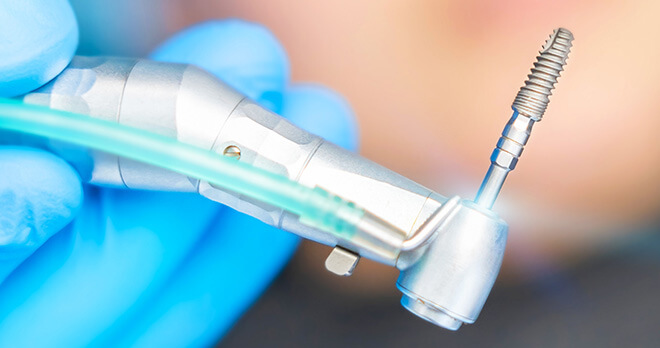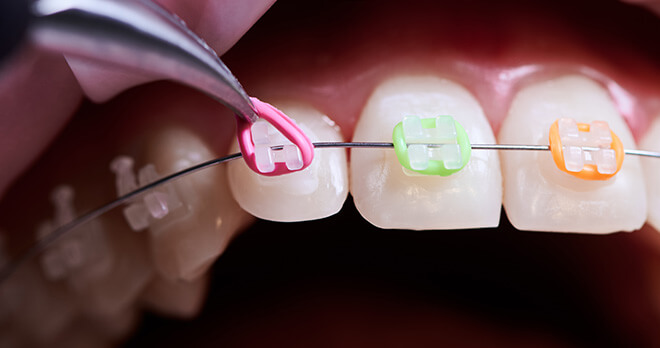What is IPR and why is it used?
Interproximal reduction known as IPR is a technique used to mechanically remove small amounts of enamel from between the teeth. It is used to help with orthodontic treatment which may include the correction of overcrowding or reshaping the area between the neighbouring teeth.
How is IPR carried out?
If only a very thin layer of enamel is to be removed, this technique will be carried out by using a file. If more needs to be taken away, then a polishing disc will be used.
Sometimes, to make some temporary space between teeth beforehand, small rubber rings called separators are placed between the teeth, a week before the IPR procedure in order to move the teeth apart slightly.
Does it hurt?
Enamel does not contain any nerves and is said to be like filing a nail! It can however lead to temporary sensitivity to hot or cold food and drinks but should return to normal within a few days.
How will I know if the right amount of enamel has been removed?
During your treatment a gauge will be used to measure the gap between your teeth. This will ensure that the correct amount is taken away. After removing the enamel your orthodontist should polish the newly filed tooth to create a smooth surface that is more resistant to plaque.
Your orthodontist may coat the teeth in a temporary fluoride varnish after the procedure to help the enamel “repair” itself.
Is it safe?
Enamel is the thin outer protective layer of your teeth. The tough shell is the hardest tissue in the human body. Because IPR involves removing very small amounts of enamel (up to 0.5mm of enamel from the sides of teeth as stated by the British Orthodontic Society) it is considered very safe and should not affect the health of your teeth or gums in any way.
Are there any risks?
It is known that plaque can collect more readily on teeth that have undergone IPR, particularly if the tooth surface is not smoothed and polished afterwards.
Is IPR suitable for anyone?
IPR is not recommended if you have poor oral hygiene, small amounts of interproximal enamel or very rectangular teeth – please ask your orthodontist for more information on this.
Got a question?
You can call the team on 0800 923 2080 or message them to understand more about you potential compensation claim for dental negligence. We will get back to you at a time that is convenient to you.
Common claim types
Insights and opinions
View more articles related to Cosmetic dentistry, Crowns and bridges, Dental implants, Dental nerve damage, Extractions, Gum disease, Information, Mouth cancer, Orthodontics, Root canal treatment, Tooth decay and Wisdom teeth










